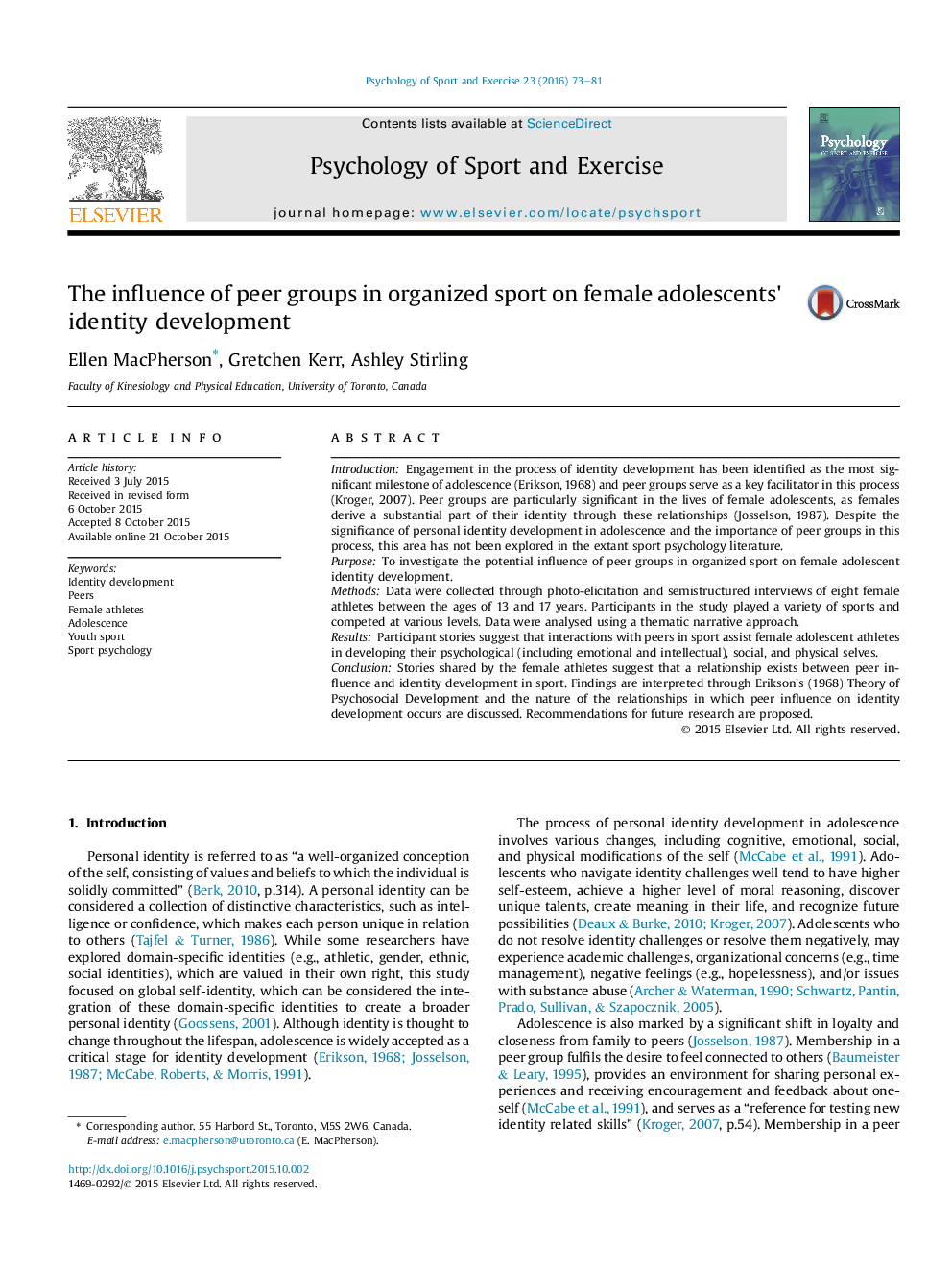| کد مقاله | کد نشریه | سال انتشار | مقاله انگلیسی | نسخه تمام متن |
|---|---|---|---|---|
| 894239 | 1472104 | 2016 | 9 صفحه PDF | دانلود رایگان |
• This study employed photo-elicitation and interviews with female athletes.
• Findings reveal a relationship between sport peers and identity development.
• Peers in sport contributed to athletes' psychological, social, and physical selves.
• Development was facilitated through friendship, negative relations, and team context.
IntroductionEngagement in the process of identity development has been identified as the most significant milestone of adolescence (Erikson, 1968) and peer groups serve as a key facilitator in this process (Kroger, 2007). Peer groups are particularly significant in the lives of female adolescents, as females derive a substantial part of their identity through these relationships (Josselson, 1987). Despite the significance of personal identity development in adolescence and the importance of peer groups in this process, this area has not been explored in the extant sport psychology literature.PurposeTo investigate the potential influence of peer groups in organized sport on female adolescent identity development.MethodsData were collected through photo-elicitation and semistructured interviews of eight female athletes between the ages of 13 and 17 years. Participants in the study played a variety of sports and competed at various levels. Data were analysed using a thematic narrative approach.ResultsParticipant stories suggest that interactions with peers in sport assist female adolescent athletes in developing their psychological (including emotional and intellectual), social, and physical selves.ConclusionStories shared by the female athletes suggest that a relationship exists between peer influence and identity development in sport. Findings are interpreted through Erikson's (1968) Theory of Psychosocial Development and the nature of the relationships in which peer influence on identity development occurs are discussed. Recommendations for future research are proposed.
Journal: Psychology of Sport and Exercise - Volume 23, March 2016, Pages 73–81
